Remember...
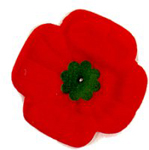 I have an undergraduate degree in History and I have taught Global Issues, Canadian Issues, and World History. I think I'm a pretty smart person. But I'm finding it harder and harder to understand the news.
I have an undergraduate degree in History and I have taught Global Issues, Canadian Issues, and World History. I think I'm a pretty smart person. But I'm finding it harder and harder to understand the news.This may be some kind of age-related brain decay. Or it may be that the news is actually getting harder to understand. Specifically, I have more and more trouble understand why forty-two Canadians (four of whom were Newfoundlanders) have been killed in Afghanistan, and what they were doing there in the first place.
Don't get me wrong; I'm no fan of the Taliban. Quite apart from their repressive attitude towards women and their other crimes against humanity, this was a regime that wouldn't allow people to listen to recorded music. That's a major atrocity in my books. If I were in Afghanistan I'd be glad to see the back of them. But it becomes more and more difficult for me to understand what's happening there and why it continues to cost the lives of young Canadians.
On Remembrance Day we wear a poppy to honour "those who died fighting for our freedom." We listen to "In Flanders Fields", a World War One poem by a Canadian poet which simulataneously evokes the tragedy of death in wartime, and urges its readers to continue the conflict.
I don't outright reject "Flanders Fields" but I think Remembrance Day ceremonies should also include readings of Siegfried Sassoon's "Suicide in the Trenches" and Wilfrid Owen's "Dulce et Decorum Est." Just to round out the picture.
For a die-hard pacificst like me, Remembrance Day is a difficult holiday. I appreciate freedom; I feel great sorrow over people who've died in war. Yet I don't always believe you can draw straight lines between that freedom and those deaths. The main thing I remember on Remembrance Day is that, in the words of the great Eric Bogle, "a whole generation...was butchered and damned." And I wish a species as smart as humanity could figure out a better way to solve problems.
Yesterday, in the midst of getting all my Christmas shopping done in a three-hour period, I sat down at a coffee shop in the mall that has a flat-screen TV mounted on the wall. Having nothing to read, I stared at the soundless TV while I ate my sandwich. While I was sitting there, they showed the names and photos of each of the 42 Canadians who have been killed in Afghanistan since 2002.
I have no family members or friends in the armed forces. I don't even have any former students overseas, although if things continue as they are I imagine that will change in the next few years and some of "my kids" my be over there. Yet seeing the faces -- especially those of the Newfoundlanders, who are hugely over-represented in the Canadian armed forces in proportion to our population -- brought home to me the losses. And it made me question again why they died, whose freedom (if anyone's) has been won by their sacrifice, and why we can't come up with a better way to settle the world's disputes than getting beautiful young men and women to shoot each other.
John McCrae wrote "In Flanders Fields" in the middle of one of the most ill-conceived and apparently pointless wars the twentieth-century has seen. The headlines were easier to figure out in those days. Everyone knew who the "bad guys" were and who was fighting whom. Yet the motivations for it, the value of fighting and dying, was no clearer then than now.
I struggle with Remembrance Day recitations of "In Flanders Fields" because I don't want to "take up [their] quarrel with the foe." I honestly believe rhetoric like that is an attempt to justify what is often beyond justification, to give meaning to meaningless deaths. I want to lay down the quarrel, to find other ways to deal with "the foe," to learn to see others as something other than foe.
Half an hour after I sat in the coffee shop crying over the faces of the dead in Afghanistan, I passed a woman in a store wearing a red T-shirt with a maple leaf on it and the slogan "Support Our Troops." We don't get as many admonitions to "Support Our Troops" as our American friends do, but they are becoming more popular here in Canada, along with the assumption that if you question the wars in which our governments choose to become involved, you are failing to support our troops. If you don't agree to take up their quarrel, they won't sleep in peace.
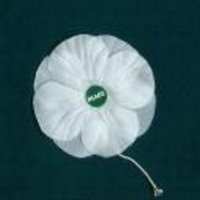
I usually wear a poppy on Remembrance Day, although often with conflicted feelings -- I'm not about to switch to a white poppy anytime soon, because I think the blood-red symbol of those green fields of France reminds me well enough of the loss of life in chaotic and sometimes stupid conflicts. When I wear it, I want to say that I support our troops.
I support our troops in the only way that makes sense to me: I want them to stop dying.
I want them back home shovelling snow off the streets of Toronto so we can laugh at the mainlanders who can't handle a bit of weather.
I am proud to see Canadian soldiers engaged in peacekeeping in places where there is actually some semblance of peace to keep.
On November 11, I remember those who died in war and honour them even if I don't always believe in the causes they died for.
I remember World War One and the slaughter of the Newfoundland Regiment at Beaumont Hamel.
I remember the horror of Hiroshima and Nagasaki.
I remember the forty-two dead in Afghanistan. I remember especially, though I never met them, Cpl. Jamie Murphy of Conception Harbour, Sgt. Vaughn Ingram of Burgeo, Warrant Officer Richard Nolan of Mount Pearl, and Sgt. Craig Gillam of South Branch.
Remember.
Remember.
Remember.
And try to find a way to make it stop.

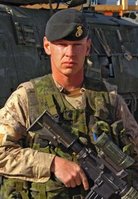
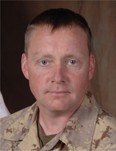
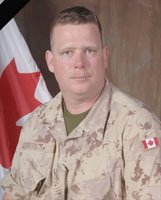

5 Comments:
Eloquently put! I too agree with the idea of reading those other poems, especially "Dulce Et Decorum Est"... profoundly moving more to the point in my books too!
Thanks for sharing your thoughts.
Lori M
I had never heard the poem "Dulce Et Decorum Est" before. Thanks for the link, and posting your interesting thoughts.
Didn't I teach you Grade 12 English, Catherine?? I'm pretty sure I always do that poem ... hmm did I miss it that year, or is it possible that not every precious word of everything I taught lingers in my students' minds forever?!?! (oh, the horror!)
Miss. Morgan, you did teach me in grade 12, but for the life of me I don't remember that poem. It seems like something I would have recalled, seeing as YOU taught me.
You would be amazed at the trivial crap that I can recall (at least my kids are)but things of value...not so much. "Sigh" I need to go back to school to learn how to use that big muscle in my head!
Catherine
Trudy, I think this is the most beautiful remembrance day post I've seen this year.
Post a Comment
<< Home